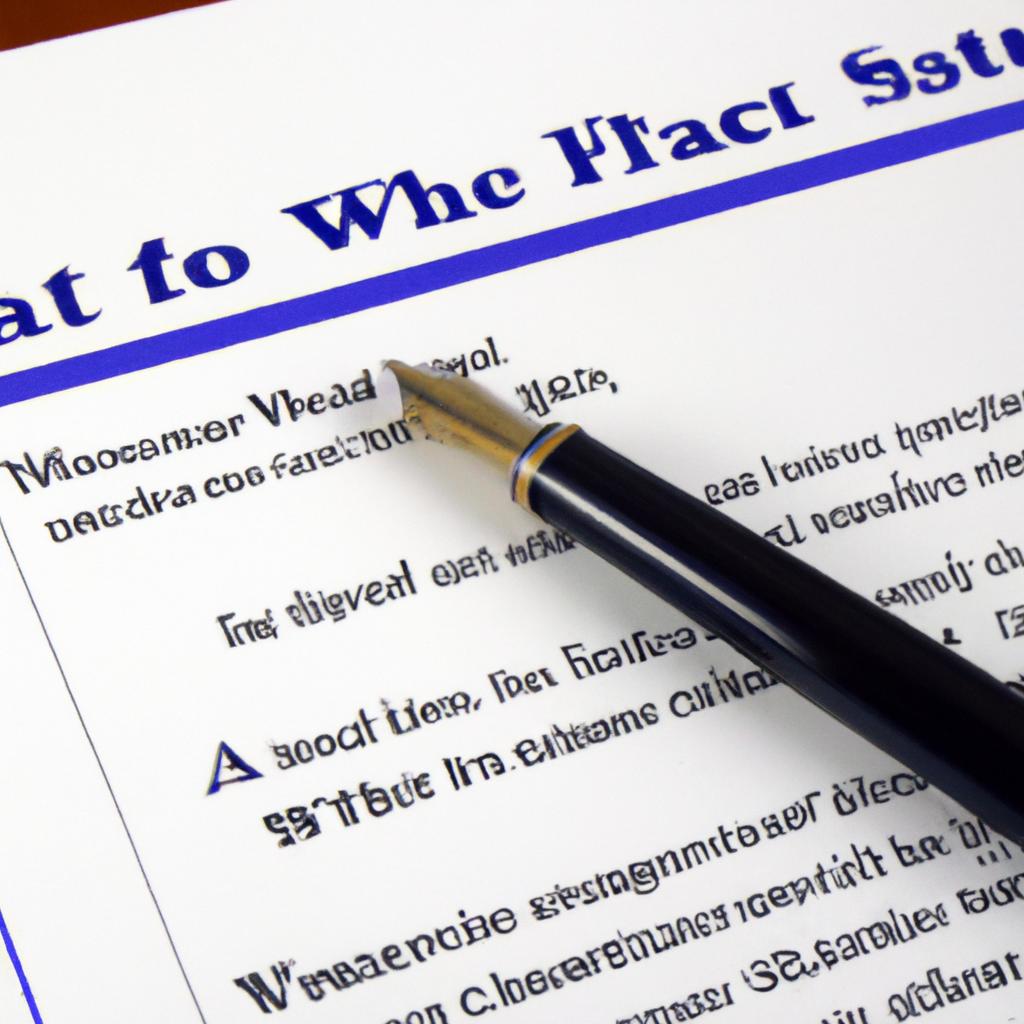In the realm of estate planning, a common question that often arises is whether a will must be written in the state in which one resides. As experienced practitioners in the field of probate and elder law, the team at Morgan Legal Group, located in the bustling metropolis of New York City, is well-versed in navigating the intricacies of wills and trusts. Join us as we delve into the nuances of this complex issue and shed light on the legal considerations surrounding the jurisdiction of one’s last testament.
Determining Jurisdiction in Estate Planning
When it comes to estate planning, one common question that arises is whether a will must be written in the state where you currently reside. The answer to this question depends on several factors, including state laws and individual circumstances.
It is important to consult with an experienced estate planning attorney to determine the appropriate jurisdiction for your will. Factors to consider include:
- State laws regarding wills and estates
- Residency requirements
- Property ownership in multiple states

Implications of drafting a Will in a different state
When it comes to drafting a Will, many individuals wonder if it must be written in the state they currently reside in. While it is not a requirement for your Will to be drafted in the state you live in, there are important implications to consider when choosing where to create your estate planning document.
One key consideration is that each state has its own laws and regulations regarding Wills and estates. If your Will is drafted in a state that has different laws than the one you live in, it could lead to complications during the probate process. It is crucial to ensure that your Will complies with the laws of the state where it will be probated to avoid potential challenges for your beneficiaries. Consulting with an experienced estate planning attorney can help you navigate the intricacies of drafting a Will in a different state and ensure that your wishes are carried out smoothly.

Factors to consider when choosing the state for drafting a Will
When deciding where to draft your Will, there are several important factors to consider. It is not always necessary for your Will to be written in the state you currently reside in. However, there are certain aspects that you should take into account when choosing the location for drafting your Will.
- Probate laws: Each state has its own set of probate laws that govern how Wills are executed and assets are distributed. It is crucial to understand the specific probate laws of the state where your Will is being drafted to ensure that your final wishes are carried out effectively.
- Tax implications: Different states have varying tax laws that can impact the distribution of your assets. It is essential to consider the tax implications of drafting your Will in a particular state to minimize any tax burdens on your beneficiaries.

Consulting with a legal professional for personalized guidance
When it comes to creating a will, many people wonder if it has to be written in the state they currently reside in. The short answer is no, your will does not have to be written in the state you live in. However, there are some important factors to consider when creating a will in a different state:
- State laws: Each state has its own laws regarding wills, so it is crucial to ensure that your will complies with the laws of both the state where it was written and the state where you currently reside.
- Executor: If your chosen executor resides in a different state, it may complicate the probate process. Consulting with a legal professional can help you navigate these complexities.
| State | Validity of Will |
|---|---|
| New York | Recognizes wills from other states |
| California | May require additional steps for out-of-state wills |
Q&A
Q: Does my will have to be written in the state I live in?
A: Not necessarily. While it is recommended to have your will written in the state you reside in, it is not a requirement.
Q: Why is it recommended to have your will written in the state you live in?
A: Having your will written in the state you live in can help ensure that it complies with the laws and regulations of that state, making it easier for your wishes to be carried out.
Q: What should I consider if I want to have my will written in a different state?
A: If you choose to have your will written in a different state, you should consult with a local attorney to make sure it still complies with the laws of your state of residence.
Q: Can I have multiple wills for different states?
A: While it is possible to have multiple wills for different states, it can lead to confusion and potential legal issues. It is generally recommended to have one comprehensive will that covers all of your assets.
Q: What should I do if I move to a different state after my will is written?
A: If you move to a different state after your will is written, it is a good idea to review it with a local attorney to make sure it still aligns with the laws of your new state of residence.
Future Outlook
In conclusion, the question of whether your will has to be written in the state you live in can depend on various factors, including state laws and individual circumstances. While it is generally recommended to have your will created in the state where you reside, it is possible to create a valid will in another state as long as it meets certain legal requirements. Consulting with a knowledgeable estate planning attorney can help ensure that your final wishes are properly documented and legally binding, regardless of where you choose to prepare your will. Remember, the most important thing is to have a well-thought-out and legally sound will in place to protect your assets and provide for your loved ones after you are gone.

